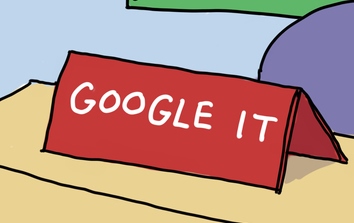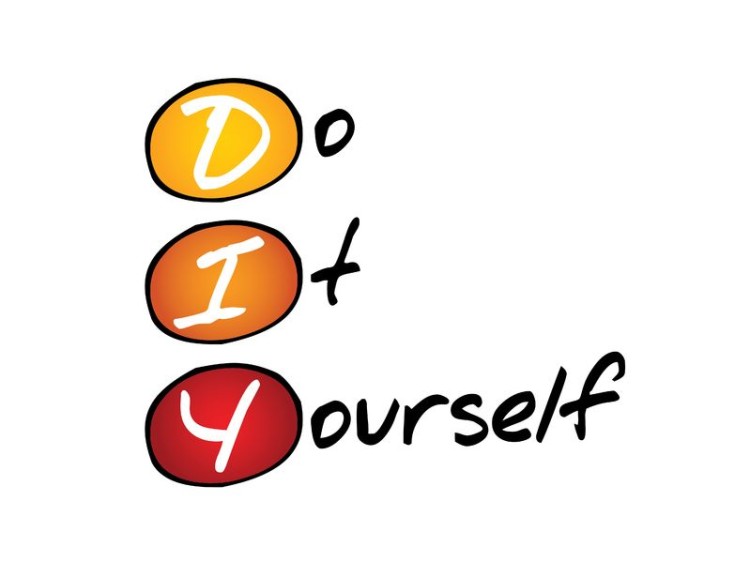At one time the term “DIY” conjured up images of hardware stores and tool boxes. Today the DIY economy touches every element of our daily lives, with as yet un-measurable impact. In the past two days alone within the DIY economy I have:
- Withdrawn cash and deposited cash using a bank machine
- Scanned and paid for my groceries via a machine
- Booked a flight, printed my boarding pass, scanned it, plus my passport in the airport
- Booked and printed a movie ticket (was even charged for the admin – go figure)
- Spoken to a computer about the speed of my mother’s internet connection (the computer did not get it right)
- Visited a Microsoft forum to sort out a problem with Skype when the official FAQ page didn’t cover my Q, and a random user did .
Self-service economy
I could go on, but I’m sure this mirrors everyone else’s experiences. According to the Economist, there are seemingly an even greater number of developments in the DIY economy pipeline on the horizon, other than the ones I’ve named. This shift to a self-service economy and workplace is at the very core of many business models today, as we in all our roles are being required to do more and more for ourselves, without specialist personal involvement of any providers.
For some this is a bonus, it releases time spent on low value work which can be spent doing other things. What I’m not sure exactly. For me it’s just a different type of low value work. The impact of this stealth process of DIY on our personal and working lives is significant.
Do we really understand the potential implications of people deprivation? I’m not sure that we do.
Here are some I have come across recently in my encounters with the DIY economy:
Lack of human interaction
Many activities which were previously managed by a service provider we now do ourselves. It has led to a loss of basic daily interaction that makes us stop, think and engage with other human beings. Telephone communication is passé with unscheduled calls now deemed intrusive by 47% in a recent 3Plus International poll.
A Gen Y coaching client commented that the remote working policy of his flat organisation, makes decision-making really slow, as no one is available to discuss anything face to face.
I almost cried when I finally got a person to deal with my Mum’s broadband speed until he asked me to call him back at some unspecified (Asian) location on my mobile. He seemed genuinely confused when I suggested he call me, as I was the customer!
 Under-performance
Under-performance
Our personal hard drives are overloaded with processes we didn’t need to know before: shopping, banking, checking-in, ticketing and reservations, and even more. So our “busy-ness” has increased even further. Stress levels are increasing at a commensurate rate.
A condition called Attention Deficit Trait is evolving in our multi-tasking, device dominated world.
“It is brought on by the demands on our time and attention that have exploded over the past two decades. As our minds fill with noise—feckless synaptic events signifying nothing—the brain gradually loses its capacity to attend fully and thoroughly to anything.”
The human attention span is now less than that of a goldfish and our ability to cope and be effective is reduced.
Boss-less workplaces
We can now manage ourselves in the workplace. Holacracy is a new way of running an organization that removes power from a management hierarchy and distributes it across clear roles, which can then be executed autonomously, without a micromanaging boss. The work is supposed more structured than in a conventional company. With Holacracy, there is apparently a clear set of rules and processes for the allocation of responsibilities and tasks.
Zappos the inventive shoe company is introducing self- management into it’s company culture via a process called is seemingly causing confusion with 200 managers opting for voluntary termination. Now “doing a job is called an “energizing a role,” workplace concerns are “tensions” and updates are made at “tactical meetings.” The ubiquitous 21st century term “circles” rears it’s head again. 
Some more traditional companies already provide online portals as centralized online resources for employees to manage their own career development, modify personal data, review benefit packages, and vacation requests. This increases operational efficiency and decreases admin costs.
Manager self-service provides managers with the tools and applications they need to make informed decisions, maximize employee productivity, and also reduce costs. if they are no longer the manager but part of a project circle, they should have even less to do.
Talent Pipeline
Recession hit companies aiming to stay “lean and agile,” have cut many lower level, unskilled or training jobs with process automation. The 18-24 year old demographic is hardest hit with a 23.2% unemployment rate in Europe. These entry-level roles serve as a crucial first job on a career. To be successful in a career, employers are now expecting entry-level candidates to have acquired key skills before they start and to be “job ready.”
This has resulted in an explosion of unpaid internships where employees are working for nothing in exchange for so called “training.” The implications for the talent pipeline are significant, as whole cohorts of young workers lack the skills required by businesses.
BYOC – DIY hardware
Many companies are also adopting a BYOC policy, as many employees prefer to use their own devices and systems. One intern was even asked to supply his own desktop! If we participate in the collaborative economy we might even be renting out surplus resources ( e.g. our car)
New skills needed
As operational activities are reduced by automation, we are seeing a skill set shift from hard skills to more strategic ones: the ability to analyse data, project outcomes, and work and collaborate within teams to allocate tasks. There is also an increased demand for people skills, but many employers are reporting a decline in this area in the Gen Y selection process, as their use of devices (and our DIY economies?) means that basic communications skills are not honed from what used to be normal daily exchanges.
Do you want to bring back people? Will personal contact continue to be a process of exception?
Get the right talent for your organisation – get in touch now!





